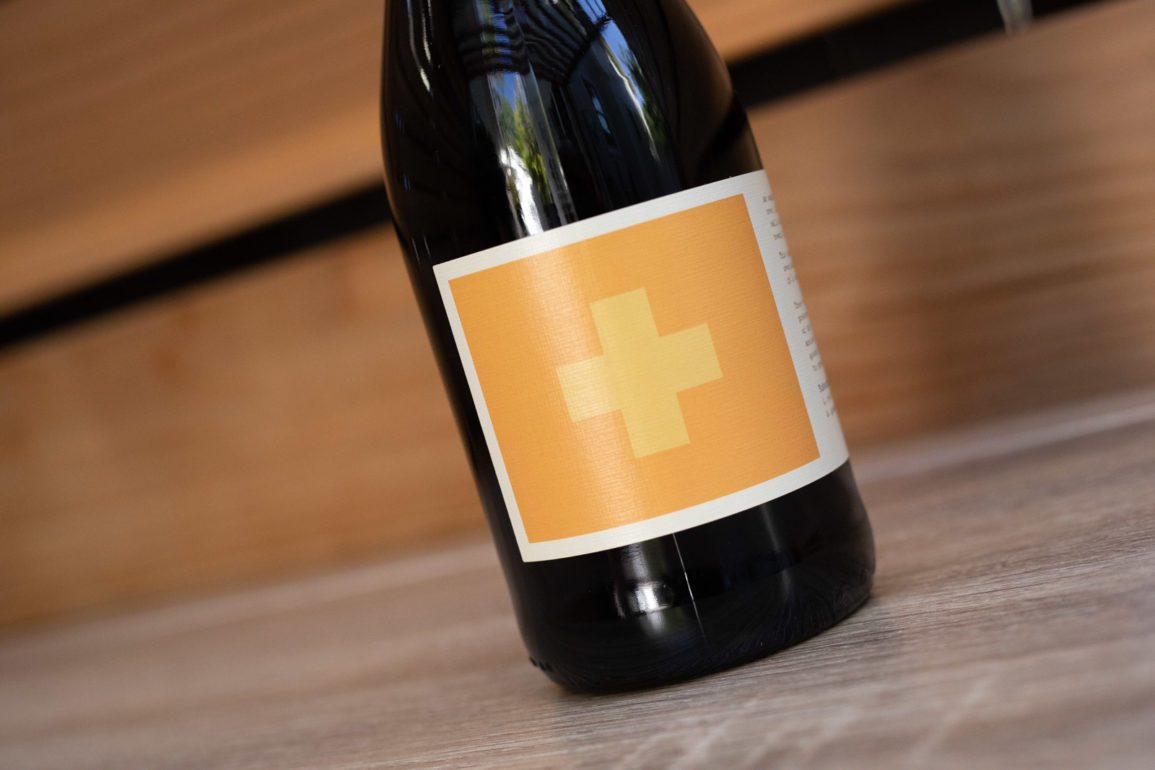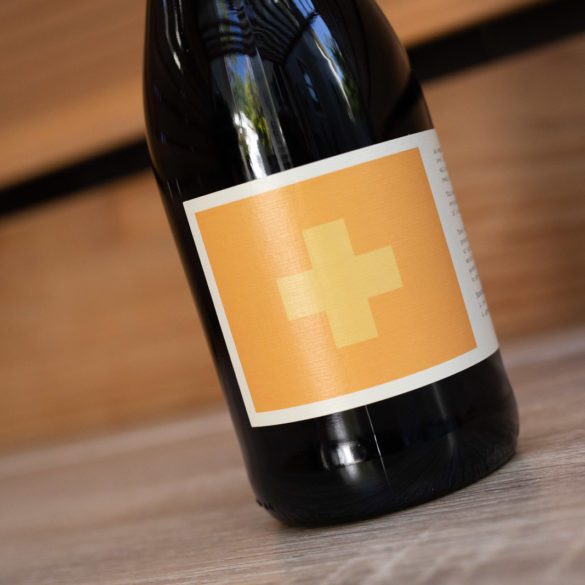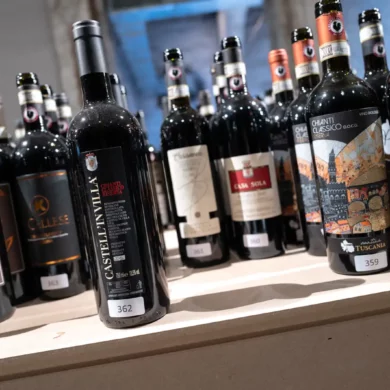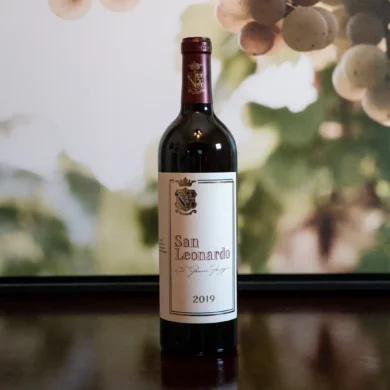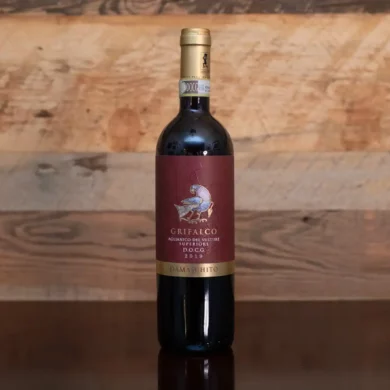This week’s wine pick is hyper specific. It is German and it is red. That alone might make it seem esoteric — a stateside denizen, you’d think, of only natural wine bars in New York City and San Francisco. But it is not made from Germany’s most celebrated red grape (Pinot Noir). It is made from Blaufränkisch, or Lemberger as it is called in Germany. And there are no famous names associated with the winery. In fact, it is a coop … well, partly.
Intrigued? I hope so. I certainly was, but as often happens with German wines, I had an editorial hangup: if I were to type these attributes into a keyword research tool, I’d surely discover that this is not a recipe for a big traffic, top-of-Google, “search win” (as we say in the “wine content space”). Riesling has been a hard enough sell for mass-appeal readers. Say, let’s up the ante with Lemberger!
But I have to insist that we talk about this wine. In fact, we should gravitate to Germany more often.
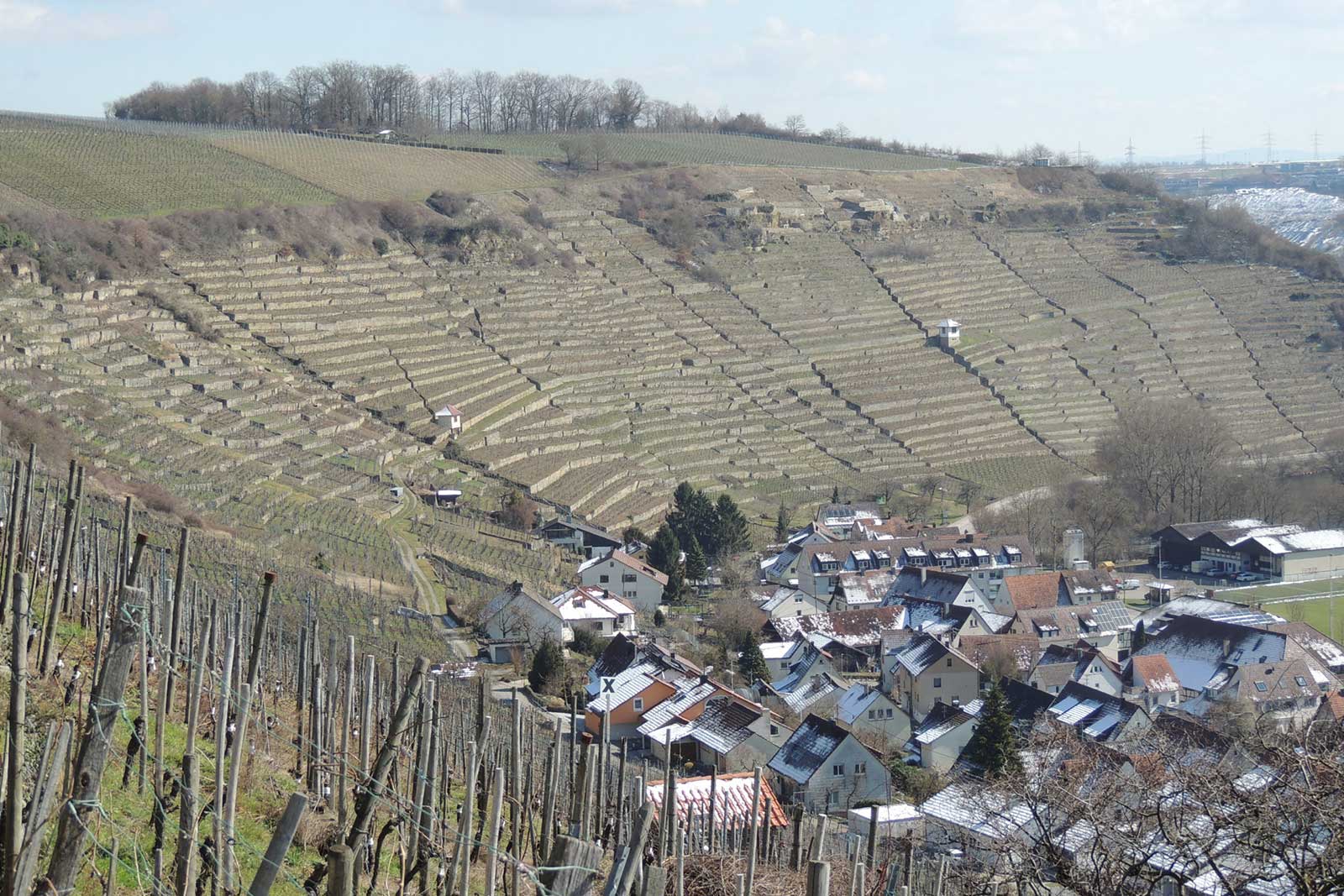
This wine had me at “hello”
Well, at least it did with its name — “Terraces Red.” It takes this moniker from the heroic vineyards that rise at a quad-burning pitch over the Swabian town of Roßwag. We are in the Württemberg region, nearer to Baden and Alsace than the Rheingau or Mosel, although that amphitheater above looks like an amalgam of all four.
Cooperatives account for 80% of the wine production in the Württemberg region, but in Roßwag that percentage is even higher. This wine, while made from coop fruit, is produced in close collaboration with a talented duo behind the local winery, Roterfaden. Hannes Hoffmann is from Roßwag, Olympia Samara is from Greece, and while they tend to some of Roßwag’s vines and make their own wine, here they’ve partnered with the cooperative to assemble the final blend of “Terraces Red.” The wine sees only stainless steel, so the emphasis here is on energy and vitality, rather than depth and structure.
In a sentence:
“The finish lingers like a Les Paul guitar plugged into a sustain pedal.”
That said, there are many reasons to take this wine seriously.
First off, it is the furthest thing from expected. There are aromas akin to tart cherries and cranberries lying in there, and even a smoky meatiness and earthiness that reminds me of autumn. But as hearty as that sounds, the wine conversely has a weightless body, soft-touch tannins, and quenching acidity. It seems to tell the drinker “use me like you would a white wine.”
But what elevates this wine into the top echelon is its persistence. The finish lingers like a Les Paul guitar plugged into a sustain pedal. This is not some flimsy red wine from Germany’s past. This is what the future of German wine (with its warmer temperatures and boundary-pushing winemakers) will increasingly taste like.
Depending on where you live, you might have to buy “Terraces Red” online. Several NYC wine retailers are carrying it, but the importer noted to me that they work in 30 states and that their allocation of the wine’s 10,000 annual bottles is distributed within that range, here and there. Ask your local wine shop if they’ve heard of it (that’s why we have the icon: to serve as fair warning that you’ll have to hunt for it, but that the rewards are plenty).
Nonetheless, I cannot pass up the opportunity to tip my cap to heroic winemakers the world over when they toil to such an extent and give us a gift like this. Take it as inspiration that such wines exist and that they fuel our pursuit. (And look for this icon across Opening a Bottle. We love spotlighting the beautiful toil).
Speaking of the Future
When I started Opening a Bottle in the spring of 2014, I was just a few months removed from my one and only visit to Germany — the Mosel, for vacation with my German mother, my pregnant wife and my 3-year-old daughter. We had a blast, and some of my earliest wine writing was focused on vineyards just like this (only they’re more famous and produce Riesling).
But over time, France and especially Italy took over the editorial priorities. I think its time we dive back into the world of German wines more frequently. Expect more coverage in the near future.
2020 Roterfaden & Roßwag Co-Op Terraces Red
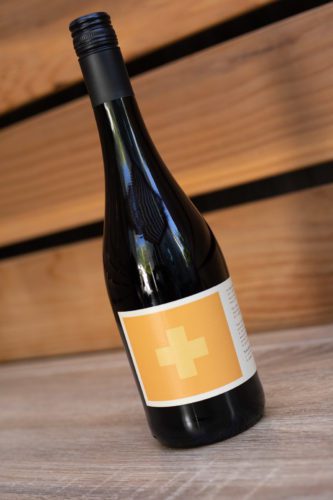 Deutscher Qualitätswein (Württemberg )
Deutscher Qualitätswein (Württemberg )
Grapes: Lemberger (100%) aka Blaufränkisch
Alcohol: 12.5%
Opinion: ★★★★★ (out of five)
Food-friendliness: Impeccable
Value: Very Good
A beginner might like … tasting something unexpected. Bored with oaky red wines? Me too. But aren’t you also sick of funky, light red natty wines that resemble a lambic-style beer? Ugh. The worst. This is a casual wine-drinker’s wine as well as a connoisseur’s wine. The fact that it comes from impractically steep slopes in a pocket of the world that — let’s be honest — isn’t top of mind when you think of wine … well, that makes it all the more compelling.
A wine obsessive might like … revising your perception of German wine. I am looking in the mirror on this one. I’ve geeked-out on Riesling for years, but never seen the web traffic show up to substantiate the effort required for deeper, long-form articles. (Besides: Trink has always had this beat covered.)
However, Germany’s diversity of wine can no longer be ignored, and for wine obsessives like us, a taste of “Terraces Red” is a profound wake-up call to wiggle free of biases and explore a bit more.
Note: This wine was provided as a sample by Wines of Germany. Learn more about our editorial policies.

